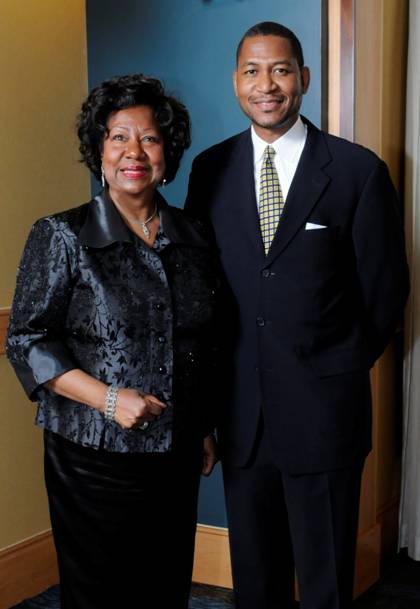Monday, March 30, 2009

PRINCESS ANNE, MD – Some 400 members of the College Language Association (CLA) converged on the city of Cambridge this week to celebrate the organization’s 72nd anniversary and its 69th annual convention, dedicated to the theme “Liberation as Theme and Strategy in Languages and Literatures.”
The occasion offered a diverse group of researchers and scholars of English opportunity to massage the possibilities inherent to the association’s preservation of the literary tradition that afforded African Americans expression and, eventually, freedom of mind, body and soul even as they endured the darkest days of the nation’s history.
Founded in 1937 as the Association of Teachers of English in Negro Colleges by a group of Black scholars and educators who were denied membership in the Modern Language Association, it is an organization that serves the academic, scholarly and professional interests of its members and the collegiate communities they represent. In 1940, the name was changed to the Association of Teachers of Language in Negro Colleges for the purpose of admitting foreign language teachers; and finally in 1949, in order to include members from predominately white institutions, one final name change occurred. Since, 1957, the association has published the peer-reviewed nationally recognized CLA Journal, the quarterly that features the scholarly research of the organization and reviews of books in the areas of language, literature, linguistics and pedagogy.
“Today, the main objective of CLA is to continue to promote scholarship and create awareness for the association as it pertains to the larger academy,” said CLA President Antonio Tillis. “CLA boasts nationally and internationally recognized scholars who meet to share intellectual ideas and exchanges. Its foremost goal is to develop graduate students who study pedagogy, African American literature and the literature of the African Diaspora.”
Topics of discussion during the 3-day convention were based on literary works by Gloria Naylor, Paul Lawrence Dunbar, Richard Wright, Charles Chestnutt and Gwendolyn Brooks, to name a few; while remembrances and suggestions of the liberating ideals of the area s own Frederick Douglass and Harriett Tubman flooded the atmosphere. Throughout, creative minds lauded the value of teachers who teach how to move beyond the barriers, the expansiveness of the African Diaspora and the notion of maximizing minimal resources, according to M.K. Asante Jr. “If you make an observation, you have an obligation,” said Asante, college professor, award-winning author and filmmaker and Langston Hughes Society Luncheon speaker for the convention.
“Our responsibility, relative to the history of our legacy,” said Tillis, “is to address the escalating percentage of African American students, particularly males, dropping out of high school and to communicate the importance of education. It goes beyond instruction in the classroom. Sometimes we have to be the ‘other mother’ or the ‘other father.'”
UMES President Thelma B. Thompson served as host for the convention, headquartered at the Hyatt Regency Chesapeake Bay Golf Resort, Spa and Marina. A Thursday evening reception at the UMES campus honored area writers Martha A. Burns and Linda S. Hartsock, co-authors of the memoir “Voices of the Chincoteague: Memories of Greenbacksville and Franklin City, Va.”; R. Owen Hooks, author of “The Wild Pony Auction at Chincoteague”; and UMES own Mignon Holland Anderson, author of “Mostly Womenfolk anx

